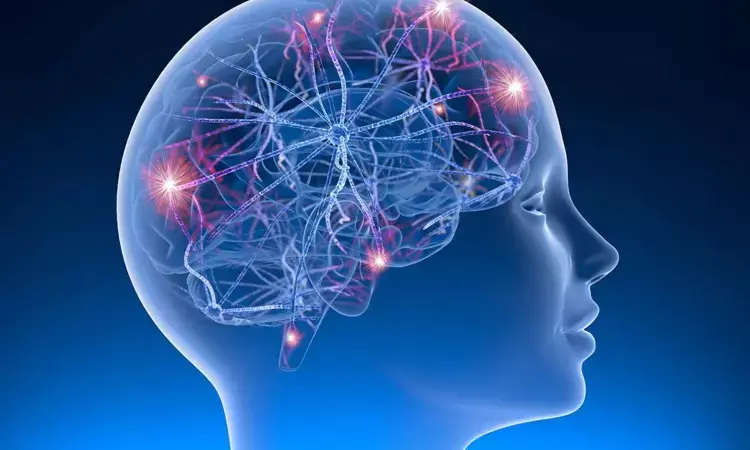- Home
- Medical news & Guidelines
- Anesthesiology
- Cardiology and CTVS
- Critical Care
- Dentistry
- Dermatology
- Diabetes and Endocrinology
- ENT
- Gastroenterology
- Medicine
- Nephrology
- Neurology
- Obstretics-Gynaecology
- Oncology
- Ophthalmology
- Orthopaedics
- Pediatrics-Neonatology
- Psychiatry
- Pulmonology
- Radiology
- Surgery
- Urology
- Laboratory Medicine
- Diet
- Nursing
- Paramedical
- Physiotherapy
- Health news
- Fact Check
- Bone Health Fact Check
- Brain Health Fact Check
- Cancer Related Fact Check
- Child Care Fact Check
- Dental and oral health fact check
- Diabetes and metabolic health fact check
- Diet and Nutrition Fact Check
- Eye and ENT Care Fact Check
- Fitness fact check
- Gut health fact check
- Heart health fact check
- Kidney health fact check
- Medical education fact check
- Men's health fact check
- Respiratory fact check
- Skin and hair care fact check
- Vaccine and Immunization fact check
- Women's health fact check
- AYUSH
- State News
- Andaman and Nicobar Islands
- Andhra Pradesh
- Arunachal Pradesh
- Assam
- Bihar
- Chandigarh
- Chattisgarh
- Dadra and Nagar Haveli
- Daman and Diu
- Delhi
- Goa
- Gujarat
- Haryana
- Himachal Pradesh
- Jammu & Kashmir
- Jharkhand
- Karnataka
- Kerala
- Ladakh
- Lakshadweep
- Madhya Pradesh
- Maharashtra
- Manipur
- Meghalaya
- Mizoram
- Nagaland
- Odisha
- Puducherry
- Punjab
- Rajasthan
- Sikkim
- Tamil Nadu
- Telangana
- Tripura
- Uttar Pradesh
- Uttrakhand
- West Bengal
- Medical Education
- Industry
New gene therapy promising for reducing seizures in children with focal cortical dysplasia

UK: A recent study, published in Brain, sought to find an alternative to surgery for children with focal cortical dysplasia.
UCL researchers developed a new gene therapy to cure a devastating form of childhood epilepsy, which the study shows can significantly reduce seizures in mice.
Focal cortical dysplasia is caused by areas of the brain that have developed abnormally and is among the most common causes of drug-resistant epilepsy in children. It frequently occurs in the frontal lobes, which are important for planning and decision-making. Epilepsy in focal cortical dysplasia is associated with comorbidities, including learning disabilities.
Although surgery to remove the affected brain malformation is effective, its use is severely limited by the risk of permanent neurological deficit and does not always result in seizure freedom.
Consequently, researchers at the UCL Queen Square Institute of Neurology evaluated a gene therapy based on the overexpression of a potassium channel which regulates neuronal excitability in a mouse model of focal cortical dysplasia in the frontal lobe.
Potassium channels control the movement of potassium ions in and out of cells. When there is an overexpression of a potassium channel, it means that there is greater regulation, resulting in the decrease of the activity of cells and, in turn, stopping seizures.
Co-corresponding author, Professor Gabriele Lignani (UCL Queen Square Institute of Neurology), said: “It is very exciting to see that this new gene therapy could potentially be used as an effective alternative to surgery in patients with focal cortical dysplasia.”
Gene therapies have previously been shown to work in another form of epilepsy where seizures arise in the temporal lobes, but have not been tested in focal cortical dysplasia.
In this case, the researchers introduced an engineered potassium channel gene called EKC into the affected frontal lobe of the epileptic mice. For added safety, they used a virus that is unable to replicate in order to carry the potassium channel gene.
Before giving the treatment, researchers monitored the mice’s brain activity for 15 days. They then injected either the virus carrying the EKC gene or a control virus into the affected brain area. The team then monitored the mice’s brain activity for another 15 days.
The researchers found that the gene therapy reduced seizures by an average of 87% when compared with the control group, without affecting the mouse’s memory or behaviour.
Lead author Dr Vincent Magloire (UCL Queen Square Institute of Neurology) said: “Following the successful study in mice, we believe the treatment is suitable for clinical translation, and, taking into account the size of the unmet need, it could be deployed to thousands of children who are currently severely affected by uncontrolled seizures.”
Co-corresponding author, Professor Dimitri Kullmann (UCL Queen Square Institute of Neurology) added: “Plans for a first in human clinical trial are underway and are planned in the next five years.”
Reference:
Amanda Almacellas-Barbanoj, Robert T. Graham, Jenna Carpenter, Marco Leite, Justin Hoke, Felisia Hardjo, James Scott-Solache, Christos Chimonides, : Anti-seizure Gene Therapy for Focal Cortical Dysplasia, https://doi.org/10.1093/brain/awad387.
Dr Kamal Kant Kohli-MBBS, DTCD- a chest specialist with more than 30 years of practice and a flair for writing clinical articles, Dr Kamal Kant Kohli joined Medical Dialogues as a Chief Editor of Medical News. Besides writing articles, as an editor, he proofreads and verifies all the medical content published on Medical Dialogues including those coming from journals, studies,medical conferences,guidelines etc. Email: drkohli@medicaldialogues.in. Contact no. 011-43720751


